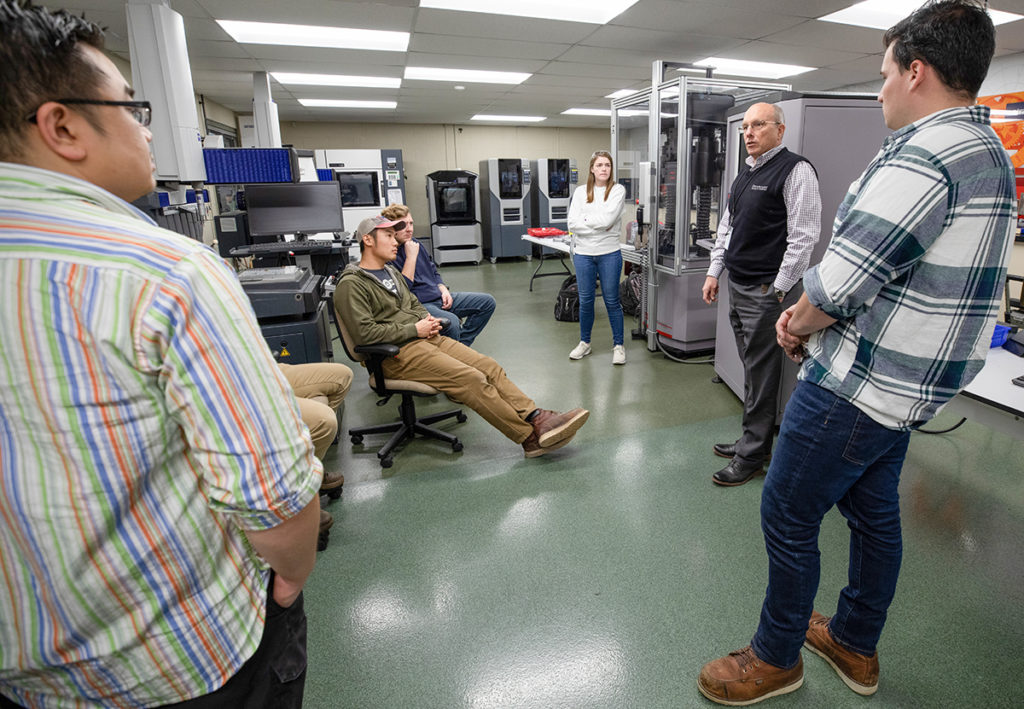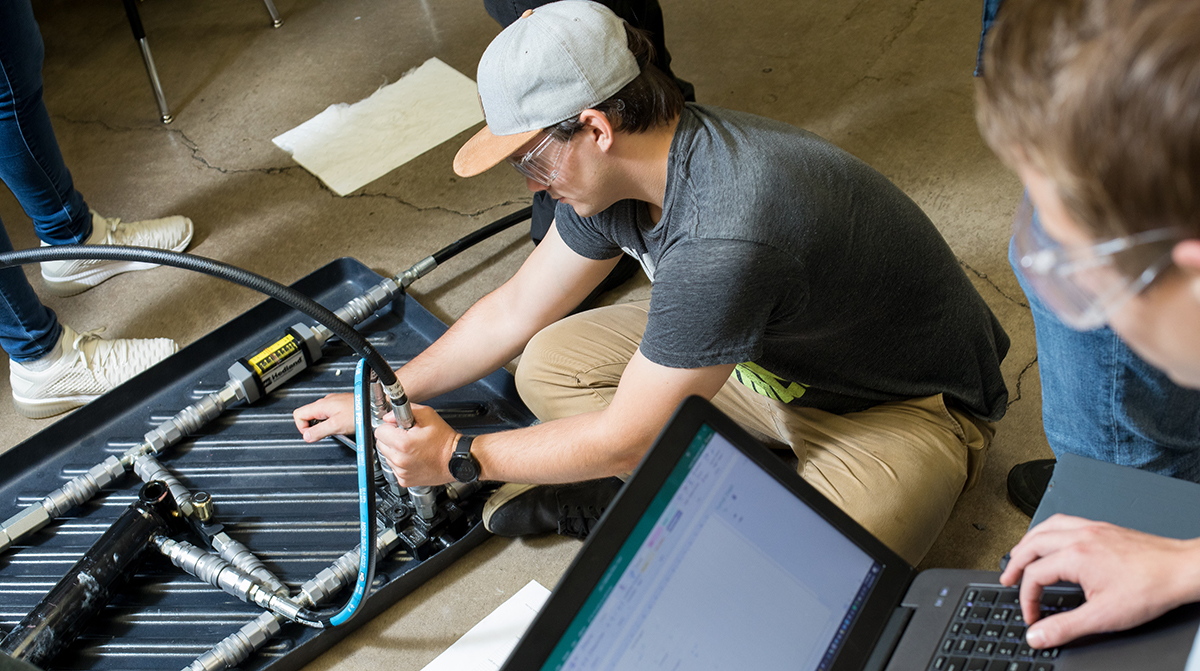Project-focused, collaborative, and designed for industry
Most U.S. companies project that their engineering department will need to grow over the next five to 10 years. In fact, data from the Minnesota Department of Employment and Economic Development lists engineering fields as some of the highest growth occupations. Those projections estimate that by 2026 employment openings in software will grow by 23.8 percent, industrial engineering will grow by 10.8 percent, electrical engineering will grow by 10.1 percent, and mechanical engineering will grow by 9.8 percent. In addition to that growth, 10,000 baby boomers are hitting retirement age each day, further adding to the need for more workers to fill those gaps.
At the same time, industry is increasingly looking for a different type of engineer. Today’s engineers need to be collaborators, creative problem-solvers, and innovators who can hit the ground running. They need the ability to take on different roles, depending on the needs of the project. And they need to turn ideas into workable solutions that are competitive in the marketplace.
In short, they need the hands-on, real-world learning that Dunwoody has been known for during the past 105 years.
When Dunwoody started its first four-year engineering degree in 2016, the College decided to create an engineering program designed for the type of engineers industries are looking for.
“As the new dean, I saw an opportunity here to support engineering degrees that are practice-based,” said School of Engineering Dean Bill Hudson. “That also means we can bring engineering to a group of students who will benefit from having a project-focused education that really prepares them for industry and practice.”

It’s a type of education and focus that is often missing from many of the traditional engineering programs that prepare students more for graduate school then they do for industry.
At Dunwoody, engineering students not only focus on projects, they also work across curriculum and departments, which gives them the broadest experience possible. The result is engineers who can look at problems from different perspectives and work with other departments to bring a complex project to completion.
“I enjoy solving problems,” Hudson said. “I enjoy finding technical solutions that meet the needs of different constituencies. And that’s the type of engineer we are educating here at Dunwoody.”
In Demand Degrees
Dunwoody engineering students are already in high demand. During the
2018-19 academic year, the College received numerous job inquires from
companies seeking engineers:
Mechanical Engineering:
- 151 unique postings from
- 79 companies
Electrical Engineering:
- 148 unique postings from
- 80 companies
Industrial Engineering Technology:
- 76 unique postings from
- 41 companies
Software Engineering:
- 62 unique postings from
- 43 companies
